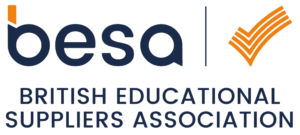Building Learning Power has one big ambition, based on three core beliefs, nurtured by three root systems, leading to a revolution in learning.
A big ambition
Building learning power is about helping young people to become better learners, both in school and out.
It is about creating a culture in classrooms – and in the school more widely – that systematically cultivates habits and attitudes that enable young people to face difficulty and uncertainty calmly, confidently and creatively.
Students who are more confident of their own learning ability learn faster and learn better. They concentrate more, think harder and find learning more enjoyable. They do better in their tests and external examinations. And they are easier and more satisfying to teach.
Building Learning Power prepares youngsters better for an uncertain future. Today’s schools need to be educating not just for exam results but for lifelong learning. To thrive in the 21st century, it is not enough to leave school with a clutch of examination certificates. Pupils/students need to have learnt how to be tenacious and resourceful, imaginative and logical, self disciplined and self-aware, collaborative and inquisitive.
BLP schools have been pioneering ways of taking this ambition really seriously
Three core beliefs
Building learning power is based on three fundamental beliefs
- BLP believes that the core purpose of education is to prepare young people for life after school; helping them to build up the mental, emotional, social and strategic resources to enjoy challenge and cope well with uncertainty and complexity
- BLP believes that this purpose for education is valuable for all young people and involves helping them to discover the things that they would really love to be great at, and strengthening their will and skill to pursue them.
- This confidence, capability and passion can be developed since real-world intelligence is something that people can be helped to build up.
These three core beliefs are particularly relevant in societies that are full of change, complexity, risk, opportunity and individual opportunity for making your own way in life.
This challenge is nowhere near being met yet. We need to go beyond the wish lists of ‘wider skills’ or ‘key competencies’. What is needed has to be seen as a gradual, sometimes challenging but hugely worthwhile process of culture change by schools and habit change by teachers.
This is the challenge that BLP schools and teachers take up
Three roots
Three roots give Building Learning Power a strong and stable foundation.
Root 1 Research into the nature of learning.
In the last ten years or so a number of disciplines have come together under the banner of ‘the learning sciences’. Geneticists, psychologists, developmental psychologists, neuroscientists, sociocultural researchers and academic philosophers are shaping a new image of the malleability of young minds, and BLP tries to make as much use of these ideas as possible.Root 2 Practitioner research and experience.
BLP is grounded in the reality of schools and classrooms, and what busy teachers find possible, practical and interesting to try out. Teachers are encouraged to see themselves as research partners in the BLP community of enquiry, and where possible to write up their experiments and small action research projects.Root 3 Commitment to a vision of education
BLP is rooted on a vision of education that grows out of the real demands, risks and opportunities of the 21st century; is appealing and accessible to all young people, not just the academically ‘able’ or inclined; which values, in reality as well as in rhetoric, more kinds of outcomes than literacy, numeracy and examination grades.Taken together these three root systems provide BLP with a strong and stable foundation.
So Building Learning Power appeals to anyone who wants to know how to get better results and contribute to the development of real-life learners – both at once. It is for teachers, teacher trainers, parents and anyone involved in formal and informal education. It particularly appeals to those who want more than sound-bites and quick fixes; who seek a satisfying approach that leads to cumulative growth in students’ real-life self-confidence and ingenuity.
[button link=”?page_id=288″]next: why change?[/button]
